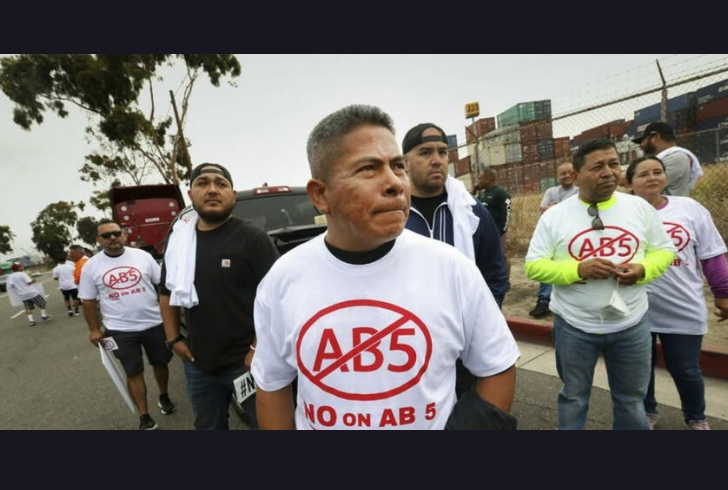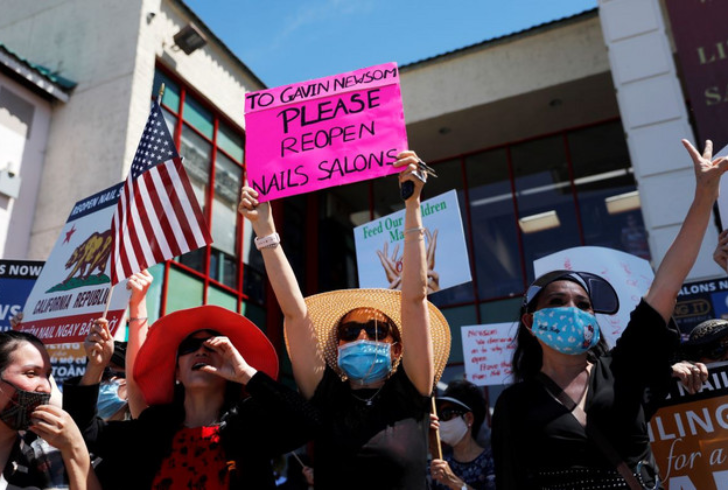Vietnamese Nail Salons Sue California Over Labor Code Changes
For decades, Vietnamese-owned nail salons have been central to California’s beauty industry, especially in areas like Orange County. But now, several of these business owners are suing the state, claiming recent labor code changes are unfairly targeting their businesses—and their community.
At the heart of the lawsuit is the shift in classification rules that force manicurists to be employees rather than independent contractors, a move these salon owners say disrupts their business model and threatens their financial stability.
The Lawsuit
The lawsuit, filed in the U.S. District Court in Santa Ana, argues that California’s labor laws violate the 14th Amendment’s equal protection clause. Vietnamese salon owners claim the mandate to classify nail technicians as employees unfairly penalizes their businesses, especially since other beauty professionals like hairstylists are exempt.
This change stems from Assembly Bill 5 (AB 5), passed in 2019, which established stricter guidelines for determining whether a worker is an independent contractor or an employee. Though intended to offer workers better protections, such as guaranteed minimum wage, overtime, and workers’ compensation, salon owners argue that the law now places unreasonable burdens on small businesses.
The Business Model Under Pressure

Instagram | @inthesetimesmag | Vietnamese nail salon owners are frustrated by AB 5’s inconsistent enforcement.
For years, the Vietnamese community has built successful careers in the nail industry through the independent contractor model. Many technicians rent chairs, bring their own clients, and manage their own hours. This model allowed flexibility, especially for women balancing work and family.
But under the new classification rules:
– Salon owners must take on higher payroll costs.
– They are responsible for paying workers even during slow business hours.
– The flexibility that technicians value is lost.
“Hiring full-time employees when there’s inconsistent customer flow doesn’t make sense for many small salons,” said Ân Tran, owner of two Happy Nails & Spa franchises. Tran argues that the law now forces salon owners into a model that simply doesn’t fit the reality of their day-to-day operations.
An Uneven Playing Field
One of the most frustrating aspects for Vietnamese salon owners is the apparent inconsistency in how AB 5 is applied. While nail salons must comply, other professions—such as doctors, accountants, real estate agents, and even hairstylists—received exemptions.
This selective enforcement has raised questions about bias. Assemblyman Tri Ta, who represents a large Vietnamese population in Westminster, stated, “Their lives have turned upside down overnight. It is not just unfair, it is discrimination.”
This discrepancy leaves many salon owners asking: Why are Vietnamese-owned salons being held to different standards?
Nail Salons’ Cultural and Economic Significance
The nail salon industry is deeply tied to the Vietnamese American identity in California. After 1975, many Vietnamese refugees found a foothold in the U.S. through nail work. Today, over 82% of nail technicians in California are Vietnamese, and about 85% are women.
For many immigrants, owning a salon was not just a business decision—it was a pathway to stability and opportunity. By requiring these salons to shift to an employee-based model, the state risks eroding a system that has empowered thousands to build a life from scratch.
Workers’ Voices Add to the Debate

Image by Exmoo | Vietnamese salon owners fight back through lawsuit for fair treatment.
At a recent news conference, several Vietnamese manicurists shared their concerns. Emily Micelle, who supports the lawsuit, said being an independent contractor lets her control her hours, clients, and brand.
“The law wants to protect us, but being an employee doesn’t work for everyone,” she said.
Her comments highlight a critical gap between what lawmakers intend and what workers actually want. Many prefer the independence that contracting offers over the structure of formal employment.
History of Industry Exploitation
While the lawsuit raises valid concerns, the industry also has a history of exploitation. A UCLA Labor Center report revealed that in 2021, nail salon workers earned a median wage of just $10.94, well below the minimum wage at the time. In some past cases, salons were caught fabricating timesheets and paying workers through convoluted commission systems.
Still, Vietnamese salon owners say those issues don’t reflect the majority. They argue that the current law punishes the whole for the actions of a few and jeopardizes an entire community’s livelihood.
A Fight for Fairness
The lawsuit by Vietnamese salon owners highlights a growing tension between labor protections and small business realities. While the intent behind AB 5 is to ensure fair pay and working conditions, the one-size-fits-all approach may be doing more harm than good, particularly for industries rooted in immigrant entrepreneurship.
This legal challenge not only questions the law’s implementation but also sheds light on broader issues of equity, cultural impact, and economic survival. With salons like Happy Nails & Spa, Blue Nail Bar, and Holly & Hudson Nail Lounge now taking legal action, California’s labor regulations may soon face a critical test.